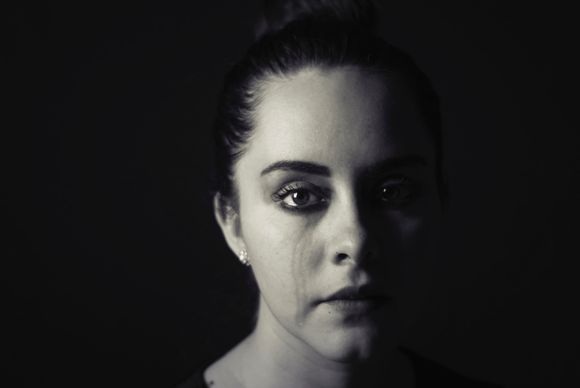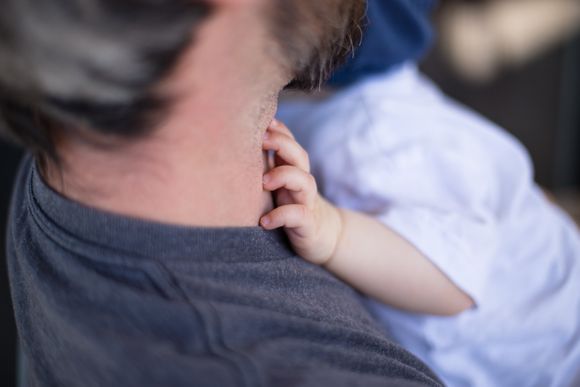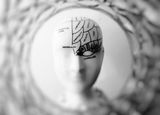Author: Rositsa Tashkova, Master of Molecular biology and Microbiology
Becoming parents is a dream of many couples who have reached this serious stage in their relationship. But the creation of the first child is often shrouded in romantic pink fog and unrealistic expectations. And the baby, like any living organism, has its constant needs. It requires 24/7 care, attention, anxieties... In the clash between expectations and reality, postpartum depression may result. It's important to know the symptoms in order to gain awareness and find a way out of it.
Symptoms of postpartum depression
In most mothers (about 80%) a condition called postpartum anxiety [ref. 1] or postpartum sadness is observed, which is normal and is not a cause for alarm, as it goes away without the need for special efforts.
It usually starts on the second or third day after the birth of the baby and lasts from one hour, up to two weeks, but no more.
It is characterized by the following symptoms:
- Poor sleep;
- Variable moods;
- Anxiety;
- Irritability;
- Problems with appetite;
- Sadness and weeping, for no obvious reason;
These symptoms are relatively mild and short-term.
Therefore, it is of the utmost importance that if we suspect that something strange is happening to us, let us acknowledge it first ourselves, and then in front of our closest ones, and seek adequate help from a psychologist or psychiatrist.

Here are the characteristic symptoms of postpartum depression:
- Difficulties in attaching to the child;
- Low spirits and sudden mood swings;
- Insomnia or too much sleep;
- Feelings of hopelessness, shame, guilt;
- Obsessive thoughts about not being a good mother;
- Loss of appetite or abnormal overeating;
- Anger and intense irritation;
- Exhaustion;
- Loss of interest in activities that have pleased us before;
- Very strong anxiety, panic attacks;
- Thoughts of violence and death.
What are the causes of postpartum depression
About 15% of all mothers [ref. 4] are affected by postpartum depression. The causes of its occurrence are complex and diverse. These include both psycho-emotional factors and physiological changes over which we have no control.
Immediately after birth, the levels of female sex hormones estrogen and progesterone are drastically reduced. This decline also leads to changes in the synthesis of the hormone Serotonin, which is associated with feelings of happiness and satisfaction.
Hormone levels synthesized by the thyroid gland also change, which can make us feel constantly tired, and this in combination with chronic lack of sleep contributes to the development of depressive symptoms.
In addition to these physiological changes, psychological factors are no less important. Due to pregnancy, a woman's body changes and this can make her feel unattractive [ref. 5], as if she had lost something that belonged to her. Caring for a newborn can be exhausting. They seem to take up all the time of the parents, especially the mother, and this creates a feeling of losing control of their own lives, of losing their freedom.

Various philosophical reflections on the future of the child, about our ability to cope with the upbringing of the new person, on the financial side of things, can contribute to physiological disorders causing the development of postpartum depression.
However, it should be considered that as scary as it may seem, once the child has come into this world loved and desired, we, as parents, will surely find the best way to deal with the challenges ahead. It is normal to have some doubts, but they should not acquire pathological dimensions.
Genetic factors that predispose to postpartum depression
In recent years, a number of studies have been conducted on potential genetic factors, which may play a role in the development of postpartum depression. It has long been thought that the condition is due to a sharp drop in the level of the female hormone estrogen after childbirth. However, this change in estrogen levels happens in every mother, but only some develop depression.
In 2013, scientists at Johns Hopkins [ref. 12] conducted a study in 52 pregnant women and found that some appeared to be more sensitive to the hormone, which translates into stronger epigenetic changes in two genes: TTC9B and HP1BP3. Postpartum depression also occurred in these mothers, and changes in TTC9B and HP1BP3 gave an 85% predictor of which women would occur.
The study's leader, Zachary Kaminsky (Zachary Kaminsky, PhD), says the genes in question may have something to do with the creation of new cells in the hippocampus and the brain's ability to reorganize and adapt in a new environment - two elements important for mood. In some ways, according to him, estrogen can behave like an antidepressant, so when it decreases, it adversely affects the mood.
According to an overview [ref. 13] of genetic causes of postpartum depression: "5HTT and 5HTTLPR are the most researched gene and polymorphism [ref. 14], respectively. 5HTTLPR has been associated with postpartum depression in most articles, but epigenetics should also be considered. Polymorphisms of the TPH1 and TPH2 genes are also associated with postpartum depression. COMT and MAOA polymorphisms have also been cited as risk factors for the condition. Only in the context of epigenetic changes is a relationship of polymorphism BDNF possible. MTHFR, CYP2D6 and PER2 polymorphisms are not associated with postpartum depression. Polymorphisms of genes associated with oxytocin, steroids and estrogen are positively linked to the condition."
When doespostpartum depression emerge and how long does it last
Postpartum depression can occur at any time [ref. 6] after birth, and in some cases even before that.
When it comes not to depression, but to normal postpartum anxiety, everything resolves within no more than two weeks. But true postpartum depression can last months and even years if no measures are taken. This would lead to the mother's inability to care for herself and the baby and may directly affect her [ref. 7] - after a while, problems with the child's nutrition, sleep, behavior and intellectual development may occur.
Untreated postpartum depression can grow into chronic general depression.
Postpartum depression in the father
A topic that is greatly ignored by society is postpartum depression in the father [ref. 8]. It is as if all the attention is directed to the mother, even though the parents are two and equally strongly experience the appearance of a child in their lives.

Symptoms in men are the same as in women, and risk factors are:
- Propensity to depression or previous moments in life in which the man has struggled with depressive symptoms;
- Age - younger men are more likely to fall into this condition;
- Financial difficulties - in society it is accepted that it is the man who has to earn a living for the family, and the difficulties in this regard put an additional burden on the shoulders of the father;
- Bad relationships in the family.
Postpartum depression in men [ref. 9] is a phenomenon that we should not be ashamed of and should not ignore.
Sometimes the appearance of postpartum depression in the mother causes her appearance in the father, because the family is a system of docked vessels, and when one suffers, the others do not remain unaffected.
Although men, are taught to suppress their feelings and not talk about them, this can only lead to unnecessary complications and deepening of a problem that is otherwise easily solved.
Treatment of postpartum depression - should we talk to a psychologist
If for more than two weeks after birth we feel unhappy, deeply anxious and anxious, we have a feeling of hopelessness, it is a very good idea to seek medical or psychological help from a specialist [ref. 10].

In some cases, therapy with a psychologist is enough to help those suffering from postpartum depression mother or father. In other cases, medication may be prescribed to regulate hormone levels or antidepressants may be needed. Of course, this treatment is appointed only by a doctor, taking into account also whether the woman is breastfeeding or not, since some drugs are not compatible with breastfeeding and can endanger the health of the baby.
In addition, good therapeutic support [ref. 11] is sharing the problem, especially with other parents who are affected by it. Understanding that we are not alone in this situation is reassuring and gives hope that we will get out of it.
It is also good to consider the fact that the mother may not realize that she is depressed. Here, loved ones play a role in recognizing symptoms, seeking and offering help in a delicate way.
As with solving of any problem, the first step is to acknowledge it, then share and seek support. It is important that the relatives of the mother or father suffering from postpartum depression are aware of the nature of the condition and that they approach with love and understanding, not with reproach and accusations that would only make things worse.
Postpartum depression will pass quickly if we take the necessary measures and seek help in time. This way we will realize what a wonderful miracle has happened in our lives and embrace it with joy and love.









